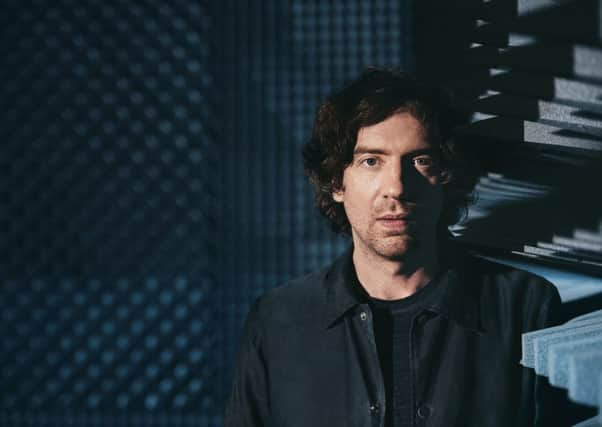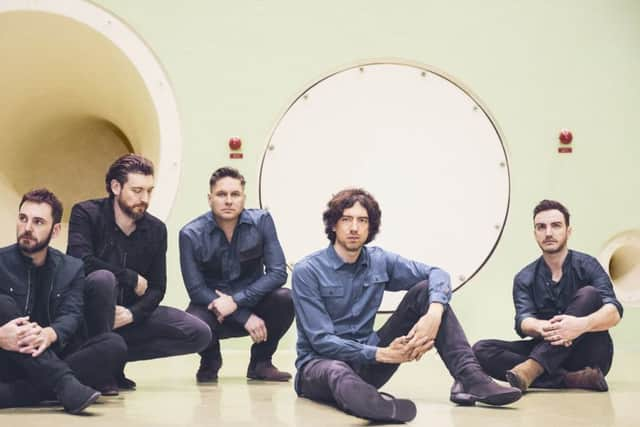Snow Patrol's Gary Lightbody: '˜I wonder what I could have done without booze and drugs'


Gary Lightbody is at home with his parents for the weekend and feeling like a kid again.
It’s a place of refuge for the Snow Patrol frontman, who has been through the mill in recent years.
Advertisement
Hide AdAdvertisement
Hide AdHe has suffered from depression, vertigo, writer’s block and a dependency on alcohol that he does not call alcoholism, but which resulted in his hand shaking if he felt in need of a drink.


But being at home lets the 42-year-old Northern Irish star feel like a teenager.
“There is definitely a part of yourself that reverts to the age you were when you left home,” he says, laughing.
“I think that’s true of a band too, it doesn’t matter how long you’ve been at it, there always is an element where you’re still kids.”
Advertisement
Hide AdAdvertisement
Hide AdBut it has been quite a journey for Snow Patrol to get where they are today, with numerous changes in name and line-up, as well as endless disappointments.
First founded at the University of Dundee in 1994 under the name Shrug, the band briefly flirted with the name Polarbear and released an EP before Snow Patrol was born.
Their first two albums, Songs For Polarbears in 1998 and When It’s All Over We Still Have To Clear Up in 2001, failed to make much of a splash.
But in 2003, they released Final Straw on a major label. It blew up and the band became famous.
Advertisement
Hide AdAdvertisement
Hide AdWhat came next was even bigger - the smash hit that was Eyes Open in 2006, with its anthem single Chasing Cars.
It topped the charts and was the bestselling British album of the year. Snow Patrol were global stars.
“It took us so long to have a hit, so I do think that most of the stuff that has happened to us over the last 15 years is like my dream, my fantasy,” he says.
“It’s very hard to take that completely seriously, so perhaps I tend not to live in the real world as much as most adults would.”
Advertisement
Hide AdAdvertisement
Hide AdBut Lightbody has also become much more reflective as he’s got older, more aware of his own weaknesses, but also better at protecting himself.
“I was always a very sensitive kid growing up. I wrote poetry from an early age, I wore my heart on my sleeve a little bit, maybe too much.
“It probably wasn’t good for me. But I also found that being open about my frailties, open about my frustrations or pain is actually the best medicine.
“I have suffered from depression my whole life. I actually feel good these days, but I’m a serious introvert and it was years playing gigs before I could look at the audience, before I could look up past my shoes and figure out how to be a frontman.
Advertisement
Hide AdAdvertisement
Hide Ad“There is a dual life where you’re trying to present the songs as best you can, because you wrote them, so you may as well give it everything you’ve got on stage.
“But then you come back to the hotel and you’re eating Quavers at three o’clock in the morning, watching 30 Rock.
“There’s a dual existence and it can really mess with your head.
“There is a strange parallel to depression, because you can be the happiest you’ve ever felt, come off stage after playing to 20,000 people and feel 20ft tall, and three hours later I’m sitting in a hotel room, feeling completely devastated, isolated, alone.
Advertisement
Hide AdAdvertisement
Hide Ad“If you’re not protecting yourself against it, it can happen at any time, and that’s why talking about it first is the most important thing.”
The band’s latest album Wildness, released earlier this year, explores some of Lightbody’s own conflicts.
“These aren’t obscure things that no-one else goes through,” he says.
“These are things that most people go through at some point in their life, be it just a general sense of not feeling right in the world, which happens to everybody at certain times, all the way up to very deep, dark depression.
“I’ve run the full spectrum of that, as have many.”
Advertisement
Hide AdAdvertisement
Hide AdThat includes other songwriters and Lightbody lists Kurt Cobain, Jeff Buckley, Chris Cornell and Prince as other artists who “dealt with the very fabric of our humanness”.
He pauses for a moment. “Most songwriters, for the most part, sit on their own and stare at a blank page.
“Sometimes it’s for seconds, sometimes years. So that’s a very solitary, reflective existence just by itself.”
But today, Lightbody feels better than he thought was possible.
Advertisement
Hide AdAdvertisement
Hide Ad“I’m waking up every day feeling like I’m ready to go, rather than waking up every day feeling like I’m ready to quit. It’s a hell of a change and I’m very happy to have got to the other side of it.
“I know there are a lot of people that haven’t got there. I know where they are. It’s hard. I think the most important thing is reaching out to people that you can talk to.
“The first thing I did when I tried to deal with my mental problems was speak to people that I trusted. The band didn’t even know. We are all very close. We are aware that sometimes we’re having bad days or whatever. I just don’t think they knew the extent of it.”